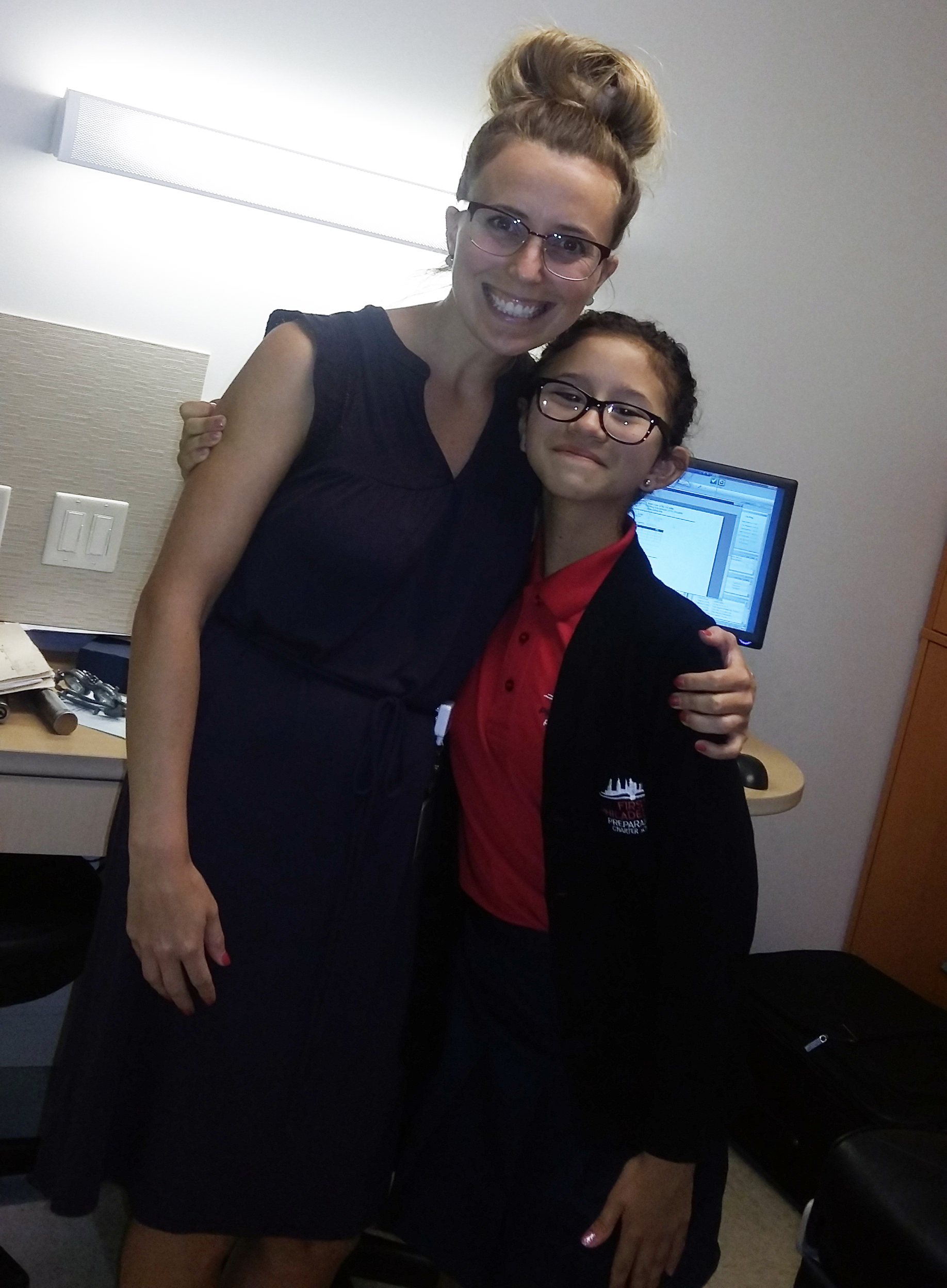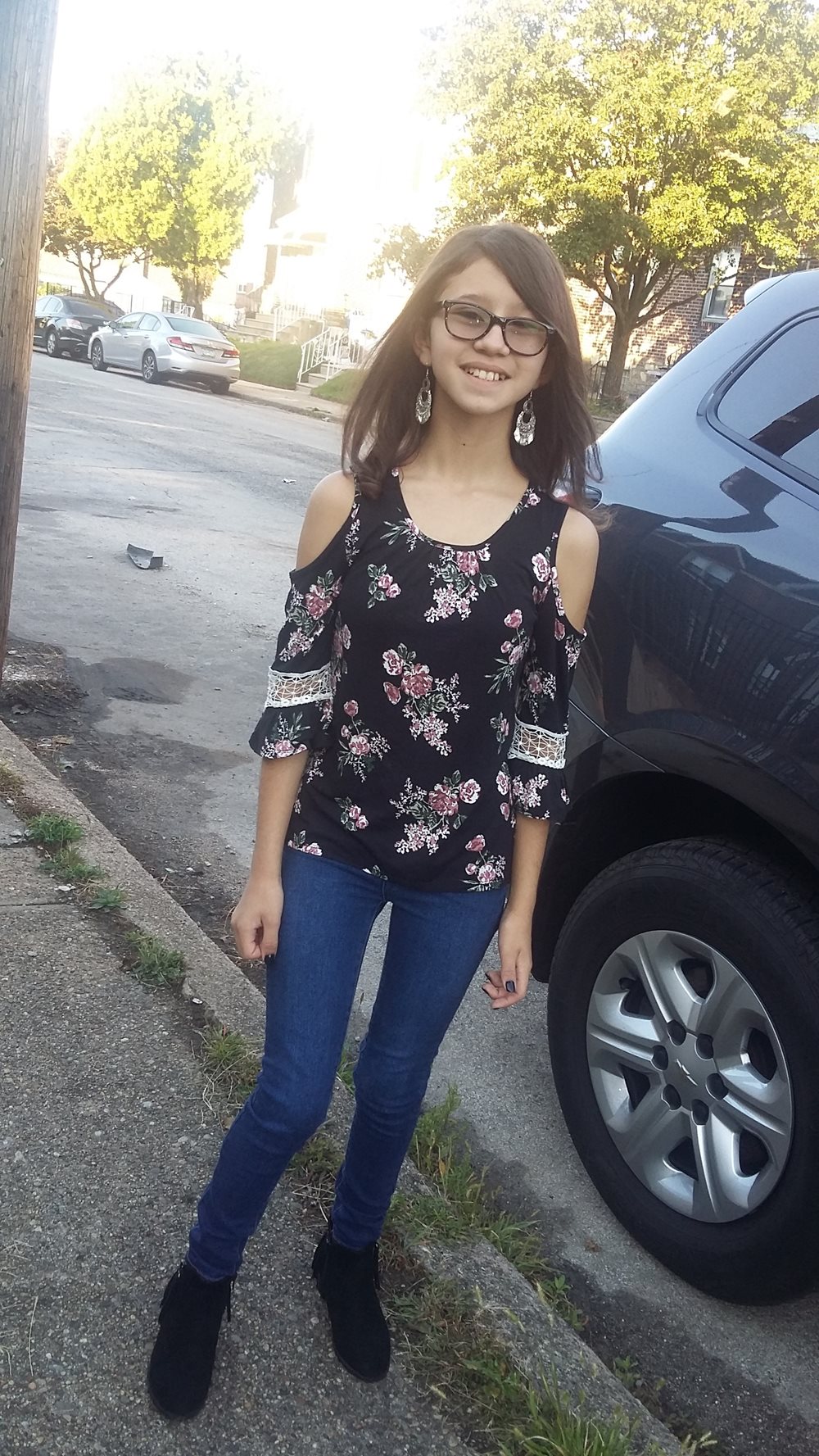Feinbloom Center Improves a Young Patient’s Vision
 According to the American Optometric Association, approximately 80 percent of what a child learns is processed through the visual system. That being said, a large part of a child’s ability to learn depends on their ability to see clearly. However for some children, such as 12-year-old, Anelis Hernandez, the ability to see clearly hasn’t always come easy.
According to the American Optometric Association, approximately 80 percent of what a child learns is processed through the visual system. That being said, a large part of a child’s ability to learn depends on their ability to see clearly. However for some children, such as 12-year-old, Anelis Hernandez, the ability to see clearly hasn’t always come easy.
Anelis’ mother Marilyn Cartagena says she always knew something was wrong with her daughter’s vision but she wasn’t sure exactly what.
“Anelis was seeing an eye doctor at the time,” Cartagena said. “He told me the issues that my daughter had were because of other conditions but I knew there was more going on.”
After discussing her concerns with Anelis’ school nurse, Cartagena decided to bring her daughter to the William Feinbloom Vision Rehabilitation Center. Housed at The Eye Institute’s Oak Lane campus, the Feinbloom Center specializes in treating patients with blindness and low vision and providing them with specialty devices to help improve their quality of life.
According to Cartagena, from the very first appointment, her and her daughter’s experience at the Feinbloom Center has been nothing but very thorough and professional.
“It wasn’t just a regular eye exam,” she said. “They ran a lot of different tests and I felt like the doctors were really trying to figure out what was causing problems with Anelis’ vision.”

It turns out Anelis had a more serious eye condition than originally thought. She was diagnosed with Goldmann Favre, a genetic disorder that affects the retina. It’s characterized by an increased sensitivity to blue light, decreased vision and night blindness–which is makes it hard to see well at night or in poor lighting.
According to Dr. Erin Kenny, chief of the Feinbloom Center, no patient is beyond help, even in the most severe cases.
“There’s always an option,” said Dr.Kenny. “There’s always something that can be done to improve a patient’s quality of life.”
Together, a team consisting of a social worker, optometrist and certified low vision therapist all worked to help improve Anelis’ vision and find strategies to help her also excel in school.
“They immediately started looking for specialty devices and different ways to help,” Cartagena said. “They even gave recommendations to the school to help accommodate her.”
Anelis and her mother were referred to the Bureau of Blindness and Visual Services, a Pennsylvania state agency that provides resources for visually impaired individuals and their families. As a result of her visit, Anelis also received stronger prescription glasses and special low vision devices.
“The glasses help a lot in school,” she said. “They magnify the things that used to be really hard to see and it’s cool because they automatically transition for when I go outside.”
“Initially she was using a magnifier which was great,” her mother said. “Now they introduced more of an iPad, which is even better. It’s really helped drastically improve her success in school.”
For both mother and daughter, the quality care and service provided by the Feinbloom Center team has made a tremendous difference.
“Now I’m able to see much better than I could before,” Anelis said.
“She can see the board and read clearer, she’s able to complete her homework easily and she’s even learning braille,” said Cartagena. “All of these things have been because of Feinbloom.”